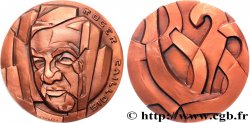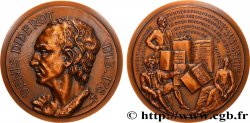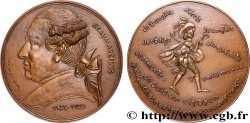E-auction 511-423560 - fme_788018 - LITERATURE : WRITERS - POETS Médaille, Hommage à Malherbe
Чтобы принять участие в торгах, вы должны войти в систему и стать подтвержденным участником аукциона. Войдите, чтобы сделать ставку. Ваш аккаунт будет подтвержден в течение 48 часов. Не ждите до закрытия торгов, чтобы зарегистрироваться.Сделав ставку на данный товар, вы вступаете в юридическое соглашение на покупку выбранного товара и нажатием кнопки «Сделать ставку» подтверждаете принятие вами условий интернет-аукционов cgb.fr.
Ставка может бить сделана только в полном эквиваленте евро. Торги закроются согласно времени, указанному в описании товара, все ставки, сделанные после закрытия торгов, учитываться не будут. Не следует откладывать предложение вашей ставки до последнего момента, так как система может не успеть обработать вашу заявку, и ваша ставка не будет принята. Более детальную информацию вы найдёте здесь: FAQ по интернет-аукционам.
БЕСПЛАТНО.
БЕСПЛАТНО.
| Оценить : | 65 € |
| Цена : | 26 € |
| Максимальная предлагаемая цена : | 26 € |
| Конец торгов : | 30 January 2023 19:43:00 |
| Участников : | 3 Участников |
Тип Médaille, Hommage à Malherbe
Дата: 1815
Монетный двор / Город: 14 - Caen
Металл: copper
Диаметр: 40,5 mm
Ориентация осей монеты: 12 h.
Гравер GATTEAUX Jacques-Édouard (1788-1881)
Вес: 34,57 g.
Век: lisse
Пуансон: sans poinçon
Комментарии о состоянии
Jolie patine marron, présentant une légère usure sur certains reliefs. Exemplaire percé à 12 heures afin de visser une bélière
Ссылки в каталоге: :
Лицевая сторона
Аверс: легенда: A MALHERBE - NÉ À CAEN EN 1555 // LA VILLE DE CAEN / 1815.
Аверс: описание: Buste habillé à gauche de Malherbe, signé sur le tranché du bras : E. GATTEAUX.
Обратная сторона
Реверс: легенда: ENFIN / MALHERBE / VINT.
Реверс: Описание: Légende en trois lignes sous une lyre dans une couronne de lauriers.
Комментарий
François de Malherbe est un poète français, né à Caen vers 1555 et mort à Paris le 16 octobre 1628. Il est le fils de François, écuyer, seigneur de Digny, conseiller au bailliage et présidial de Caen, et de Louise Le Vallois.
Poète officiel de 1605 à 1628, son évolution de la magnificence à la sobriété traduit le passage du goût baroque au goût classique, amenant la poésie vers un grand dépouillement. Son influence a été considérable sur la poésie française. Bien qu'il n'ait pas écrit d'art poétique, une doctrine était tirée de ses œuvres, de ses annotations sur son exemplaire des poésies de Philippe Desportes et des remarques orales rapportées par ses contemporains. Ce sont notamment ses disciples François Maynard et Honorat de Bueil de Racan qui, suivant leur maître, créent le corpus louant « l'harmonie classique », qui prédominera pendant près d'un siècle.
Durant tout le XVIIe siècle, Malherbe est la référence majeure des théoriciens classiques. Dans son Art Poétique (1674), Nicolas Boileau le loue avec ferveur, commençant son éloge par le célèbre hémistiche « Enfin Malherbe vint »..
François de Malherbe was a French poet, born in Caen around 1555 and died in Paris on October 16, 1628. He was the son of François, squire, lord of Digny, councilor of the bailiwick and presidial of Caen, and Louise Le Vallois. Official poet from 1605 to 1628, his evolution from magnificence to sobriety reflects the transition from baroque to classical taste, leading poetry towards great austerity. His influence on French poetry was considerable. Although he did not write poetic art, a doctrine was drawn from his works, from his annotations on his example of the poems of Philippe Desportes and from oral remarks reported by his contemporaries. It was notably his disciples François Maynard and Honorat de Bueil de Racan who, following their master, created the corpus praising \\\"classical harmony,\\\" which would predominate for nearly a century. Throughout the 17th century, Malherbe was the major reference for classical theorists. In his Art Poétique (1674), Nicolas Boileau praised him fervently, beginning his eulogy with the famous hemistich \\\"Finally Malherbe came.\\\"
Poète officiel de 1605 à 1628, son évolution de la magnificence à la sobriété traduit le passage du goût baroque au goût classique, amenant la poésie vers un grand dépouillement. Son influence a été considérable sur la poésie française. Bien qu'il n'ait pas écrit d'art poétique, une doctrine était tirée de ses œuvres, de ses annotations sur son exemplaire des poésies de Philippe Desportes et des remarques orales rapportées par ses contemporains. Ce sont notamment ses disciples François Maynard et Honorat de Bueil de Racan qui, suivant leur maître, créent le corpus louant « l'harmonie classique », qui prédominera pendant près d'un siècle.
Durant tout le XVIIe siècle, Malherbe est la référence majeure des théoriciens classiques. Dans son Art Poétique (1674), Nicolas Boileau le loue avec ferveur, commençant son éloge par le célèbre hémistiche « Enfin Malherbe vint »..
François de Malherbe was a French poet, born in Caen around 1555 and died in Paris on October 16, 1628. He was the son of François, squire, lord of Digny, councilor of the bailiwick and presidial of Caen, and Louise Le Vallois. Official poet from 1605 to 1628, his evolution from magnificence to sobriety reflects the transition from baroque to classical taste, leading poetry towards great austerity. His influence on French poetry was considerable. Although he did not write poetic art, a doctrine was drawn from his works, from his annotations on his example of the poems of Philippe Desportes and from oral remarks reported by his contemporaries. It was notably his disciples François Maynard and Honorat de Bueil de Racan who, following their master, created the corpus praising \\\"classical harmony,\\\" which would predominate for nearly a century. Throughout the 17th century, Malherbe was the major reference for classical theorists. In his Art Poétique (1674), Nicolas Boileau praised him fervently, beginning his eulogy with the famous hemistich \\\"Finally Malherbe came.\\\"








 Cообщить об ошибке
Cообщить об ошибке Распечатать страницу
Распечатать страницу Отправить мой выбор
Отправить мой выбор Задать вопрос
Задать вопрос Consign / sell
Consign / sell
 Информация
Информация









